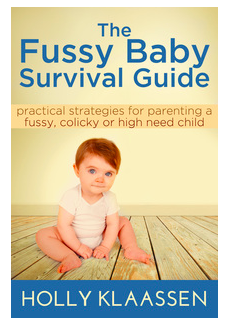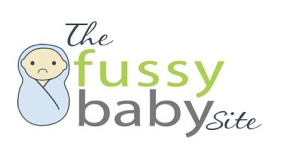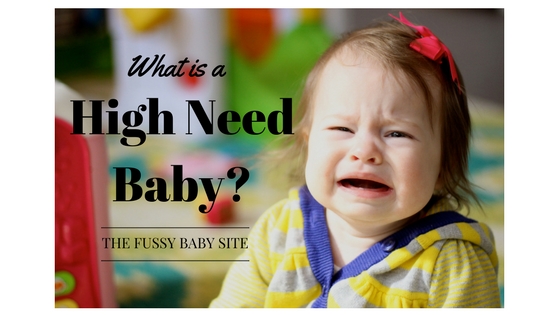- You are here:
- Home »
- Blog »
- High Need Babies »
- What Is A High Need Baby?
What Is A High Need Baby?
This seems like such a simple question, right?
If you’ve heard the term before, you’ve probably already assigned a specific meaning to it. You may think of a high need baby or toddler as one who:
- Is fussy because of a physical condition like reflux, a food allergy or sensitivity or a lip or tongue tie
- Has colic
- Is fussy due to being born prematurely, perhaps having spent time in the NICU
- Has become fussy since an illness, medical condition or surgery
- Has “special needs” (has physical or social-emotional delays, autism, sensory processing disorder, suspected ADHD, etc.)
- Is fussy because of temperament
Keep in mind the term “high need” is descriptive only. This means it’s not a diagnosis of any kind, but rather helps to describe certain behaviours we see in some babies.
According to Dr. Sears, the physician who coined the term “high need”, these babies may exhibit the following 12 characteristics:
- Intense
- Hyperactive
- Draining
- Feeds frequently
- Demanding
- Awakens frequently
- Unsatisfied
- Unpredictable
- Super-sensitive
- Doesn’t like to be put down
- Not a self-soother
- Separation sensitive
Dr. Sears explains that all babies could potentially be considered “high needs” at times. All babies have needs, and most will display some of these traits from time to time.
However, some babies may exhibit most of these traits, or may exhibit a few of these traits all the time.
I find this is when many parents start looking for a cause or explanation as to why their baby is the way he or she is.
What if my baby only has one or two of these traits?
The reality is that since there is no diagnosis for being high need, no one can tell you whether you have a high need baby.
Generally, I find most parents intuitively know if something is different about their child.
They’ve usually noticed that their child fusses and cries more than most, and requires more holding, carrying, feeding, soothing and patience than other babies. They’re almost always sleep-deprived and often feel lonely, isolated and guilty.
About half the time, parents say they noticed there was something different about their child from day one (while still in the hospital. e.g., “He cried constantly, wouldn’t sleep and wanted to breastfeed constantly.)
Other parents notice something is different a little later in infancy. Sometimes it’s when newborns typically “wake up”, around 2-3 weeks old. Sometimes, it’s after the newborn stage, when parents realize their baby won’t settle into a routine, still has troubles sleeping, and is just a lot more work than other babies.
*Note: Sometimes parents come to our toddler/preschooler support group and say their child suddenly became more difficult at 1, 18 months, etc. In my opinion, this is more often related to the child entering toddlerhood, and all that entails…so in other words, the child is going through a typical rite of passage with tantrums, asserting themselves, etc., but isn’t actually “high need’ or spirited by temperament.
However, what’s not always clear to parents is WHY their baby is more difficult than others. After all, there is a long list of possible causes – besides temperament – that could be causing or contributing to a baby’s fussiness.
So, what if your baby only has one or two of the traits above?
What I sometimes see in our Facebook groups are parents who say their child is pretty easygoing, but has significant troubles sleeping. During the day, their child is fairly relaxed, content, and adapts pretty easily to changes or transitions.
In my opinion, this is not a high need child, but rather one who has issues with sleep. I’m not saying this is less difficult to cope with, however, if we think of “high need” as being a manifestation of personality or temperament, this doesn’t really meet the definition.
In my experience, some infants just have a harder time with “state control” (handling the transition from sleep to awake and vice versa), adapting to sleep routines and to “self-soothing”. These babies often appear high need, but may simply be overtired – resulting in many of the behaviours listed above.
High needs due to temperament
It’s important to consider that research from the 1950’s suggest some babies are just “different” right from birth due to temperament.
These babies – about 10% of all babies – are born with certain traits that make them more difficult to parent. These traits are very much like the ones described above: high intensity, sensitivity, grumpy or negative mood, low adaptability, etc.
In her book, Raising Your Spirited Child, Mary Sheedy Kurcinka describes certain babies and kids as more intense, more sensitive, more perceptive, more persistent and more energetic then other kids. As you might have already guessed, she has termed these kids “spirited”.
While it’s difficult (it not impossible) to figure out the exact cause of your baby’s fussiness, over time most parents start to figure it out. If it’s largely due to a physical condition, the fussiness should improve once the condition is treated. If it turns out to be an early manifestation of personality, this eventually becomes apparent as well.
For help in deciphering whether your child has colic or is “high need”, check out my post Ages & Stages of The Fussy Baby.
Do babies grow out of being high need?
When my son was a baby, this was a question I desperately needed an answer to. I wanted to know if he would get easier, and if so, when!
Just like no one can tell you if your baby is high need, no one can tell you if she will grow out of her “high need-edness”.
If your baby exhibits the traits above due to a physical condition, colic, a traumatic medical procedure, etc., he or she will very likely outgrow the fussiness (with colic, this always happens at 4-5 months at the outside).
If your baby exhibits high need behaviours due to temperament, the answer isn’t quite so clear.
In general, high need babies tend to get easier as they get older. They can learn to deal with their big emotions, to become more adaptable, and to channel their energy in appropriate ways.
Of course, a lot of this has to do with how we parent them. Do we parent them in a way that respects their temperament, and that gives them the skills to learn and grow? Or do we expect them to simply listen/obey/fall in line, without any concessions on our part? If so, we might be in for some challenges!
In my experience (and based on research, and on what I’ve heard from many parents over the years), high need babies can turn out to be the most amazing kids, teens and adults.
Chart courtesy of Ask Dr. Sears
All the traits that are so frustrating as babies and toddlers start to become their BEST traits as they get older. For instance, while a high need baby may be highly-sensitive, this sensitivity translates to empathy and compassion in older kids and teens.
If we continue to parent them patiently, warmly and flexibly, high need babies can turn out great. If you’re currently parent to a high need baby, work this mantra into your day-to-day routine: “All the hard work I’m doing now WILL be worth it!”.

High need babies and spirited kids can be exhausting, but they’re not impossible to parent! That said, we may need to change up our strategies if we want to raise them in a way that respects their unique temperament. The Fussy Baby Survival Guide will walk you through sleep, effective soothing strategies, tantrum management and more!
Click here to check it out now.
“Crying baby girl” by Haylee Sherwood is licensed under CC BY 2.0
Other Posts You May Like
50+ Best Toys & Products for Spirited Kids, 0-5: Christmas Gift Guide
What to Do About Sibling Fighting
How to Raise a Dragon Baby
Stop Crying, Calm Down, and Other Things We Tell Our High Need Kids
Research On High Need Babies [Fact Sheet]
What Is A High Need Baby?


